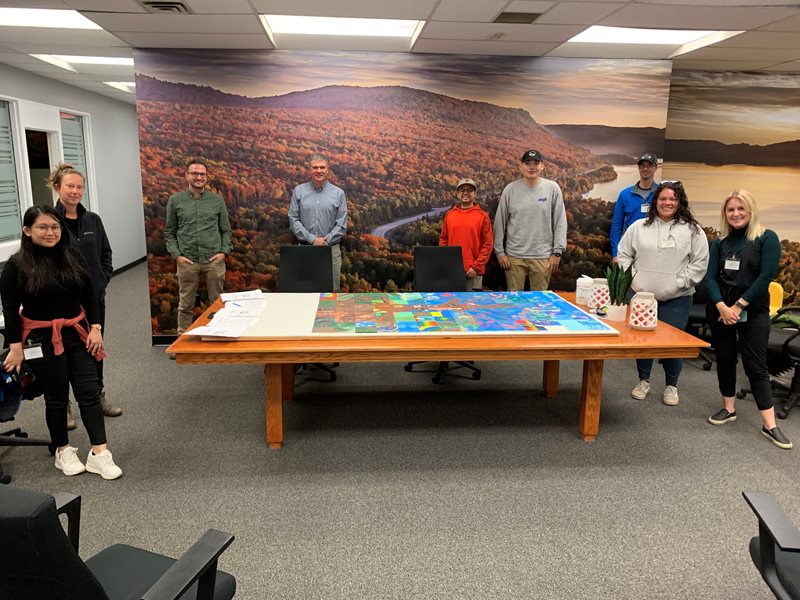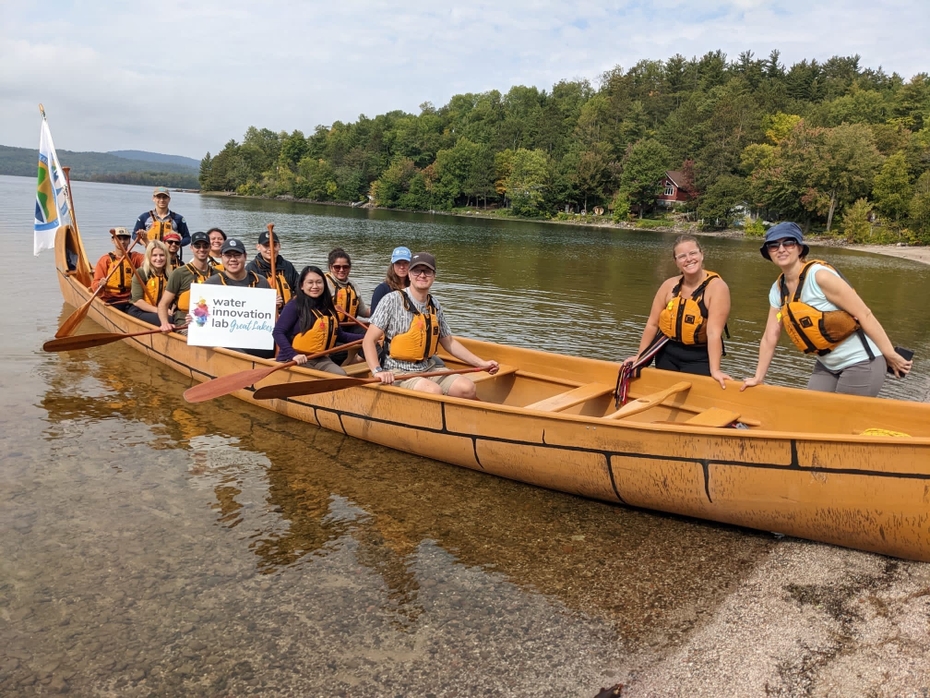By Diana Olivar, Environmental Technician student
My name is Diana Olivar, an international student from the Philippines in my first year of the Environmental Technician program. Our Program Coordinator, Jordan Ann Kevan de Haan, had sent an opportunity for students to apply for an immersive professional leadership all-expense-paid training, the Water Innovation Lab (WIL) Great Lakes 2022, designed to develop water solutions across the Great Lakes which took place in Sault Ste. Marie last September.
The program was facilitated by Waterlution – a federally registered Canadian non-profit organization focused on developing leadership for water management. It was a competitive process I applied for in the summer and only 30 young water professionals were invited. I was one of the water leaders selected to participate.
The first day of the program was held at Algoma University where we met with Indigenous women who discussed the importance of traditional knowledge and the struggle of Indigenous peoples in Canada. We learned that water is not just about the environment, but it is also a medium for social and cultural sustainability. They explained how traditional knowledge and Western science are essential in developing environmental strategies and leading environmental projects to better outcomes.
We visited the National Resources Canada (NRCan) and met Erik Emilson, a Watershed Ecologist, and discussed some environmental projects they are currently working on such as Forest Watershed Carbon Dynamics and Forest Hydrology and Climate Variability in Algoma. He also showed us his laboratory and we were fascinated by their boat drone. For more information about the watershed ecology team, please visit the Watershed Ecology Team's website.
We also met people from the Garden River First Nation and had the chance to ask questions about their research projects. We learned about environmental DNA, water systems monitoring technologies, fisheries and habitat monitoring technologies, and collaborative watershed planning.
On the last day of the program, we travelled to Bruce Mines, about 50 minutes away from Sault Ste. Marie. We performed water quality testing and kick-sampling on the Rydal Bank. We learned about how good the water quality is at the Rydal Bank and what micro/macroinvertebrates are present. We also went canoeing! Later, Lyndsay from the Gordon Foundation (DataStream) discussed their open-access hub for sharing information about water data.

(L-R): Diana (me), Lindsay, Erik Emilson and Danny Galarneau from Natural Resources Canada, Vikram, Sebastian, Nathan, Madison, and Grace.
WIL Great Lakes was a great learning experience. We learned a lot about data management, data applications, sustainable development goals, network development and water conservation technologies. The program was valuable in gaining greater knowledge in developing new water technology innovations and exposed me to like-minded professionals and gaining an international perspective on mitigating and reducing environmental risk.
As an international student, I would like to invest time in extra opportunities that would be beneficial to my studies and professional development. This opportunity will help me build and expand my professional network which can open doors to new opportunities. Volunteering and participating in any environmental-related activities will optimize my environmental aspirations and career goals.
For more information about the program, please visit waterlution.org/wil-great-lakes
